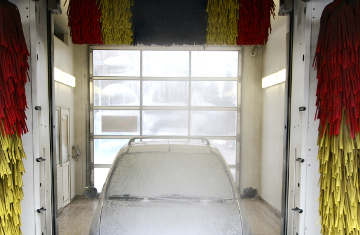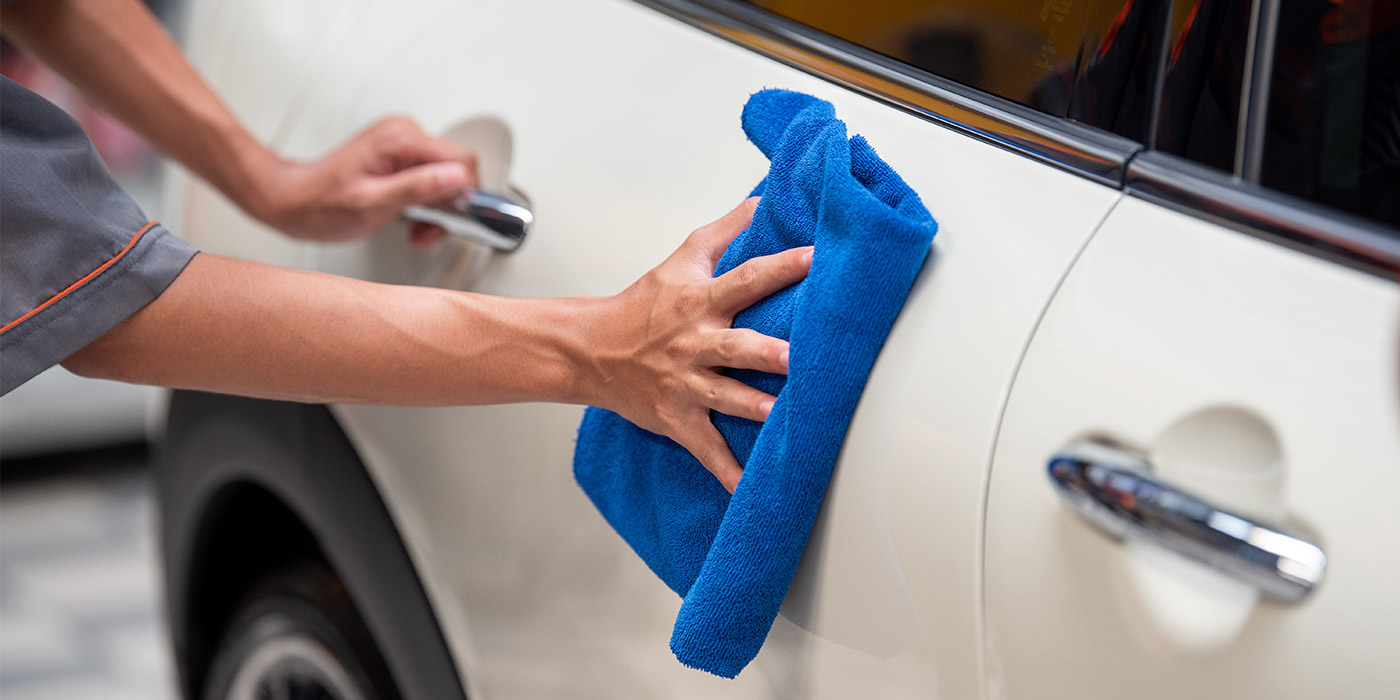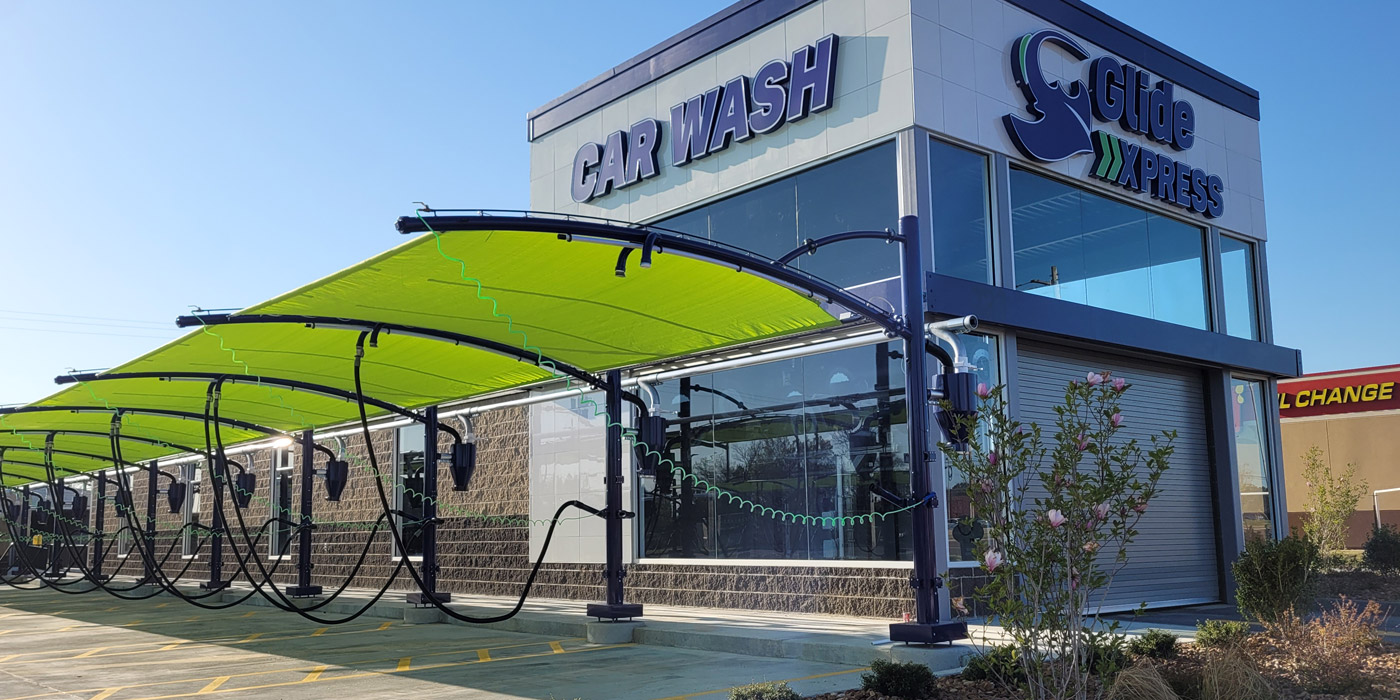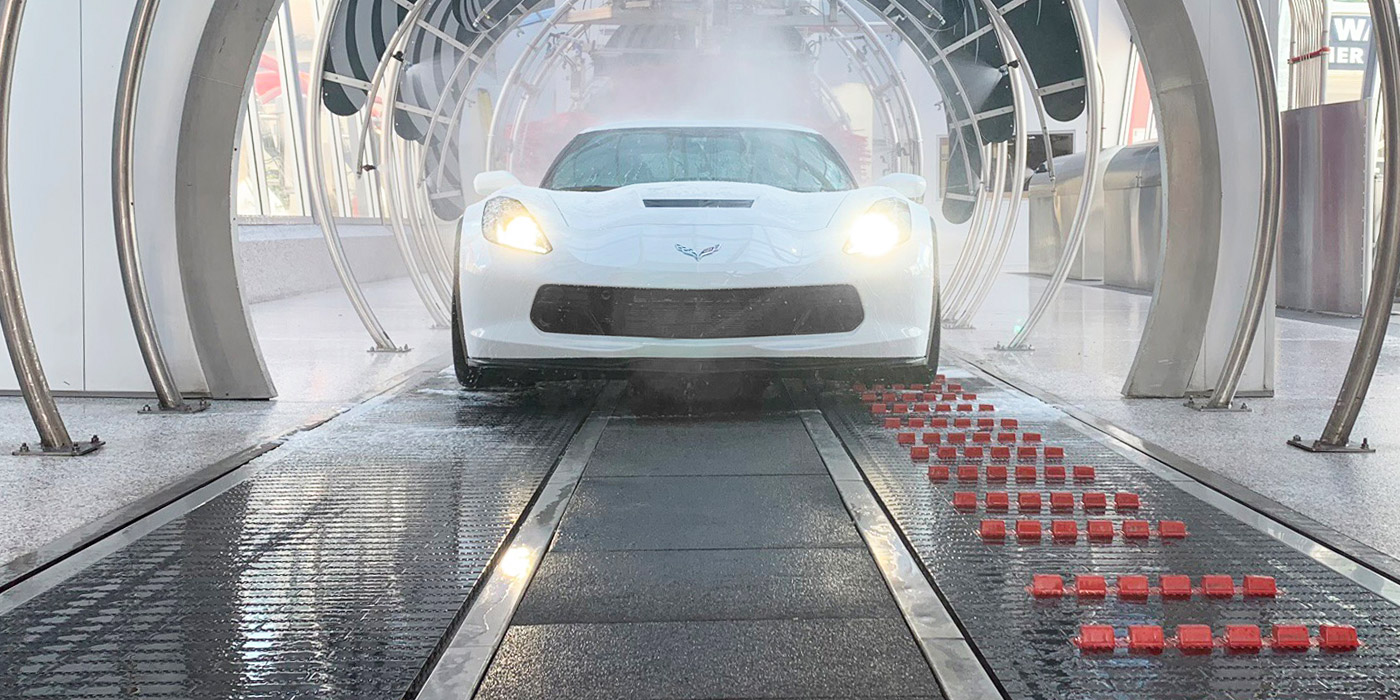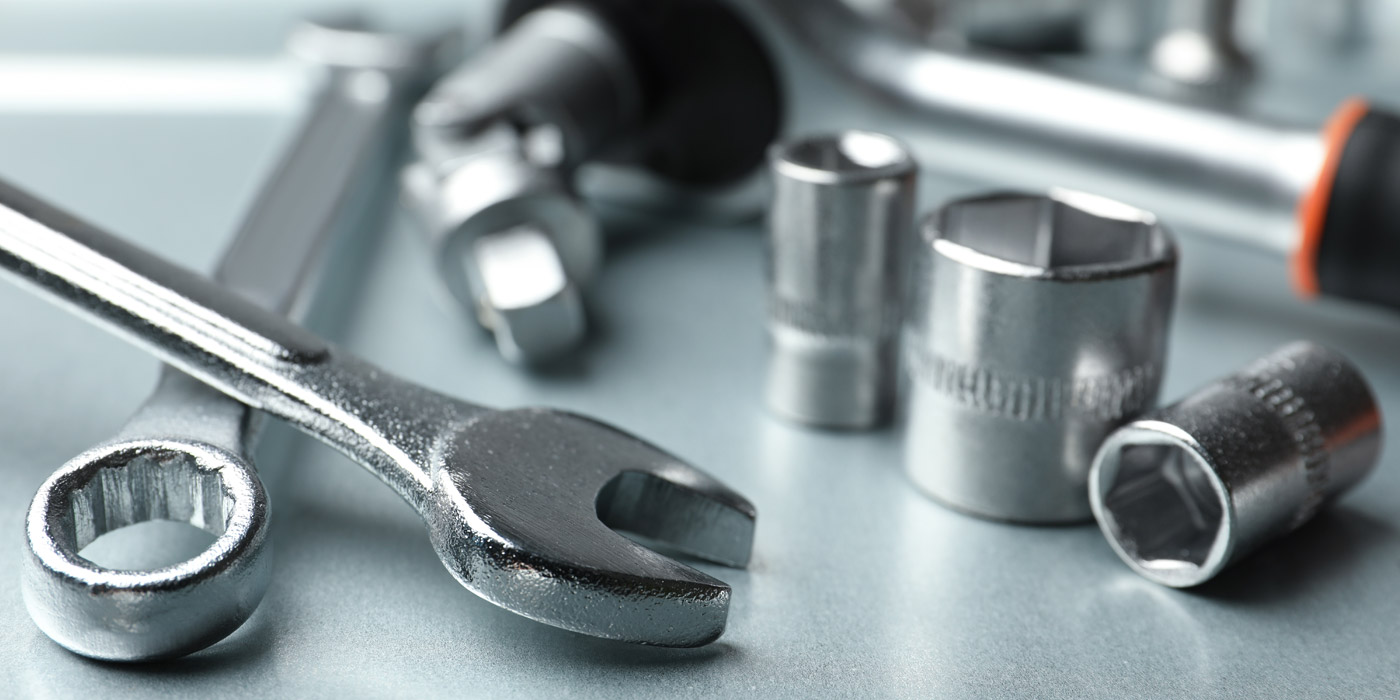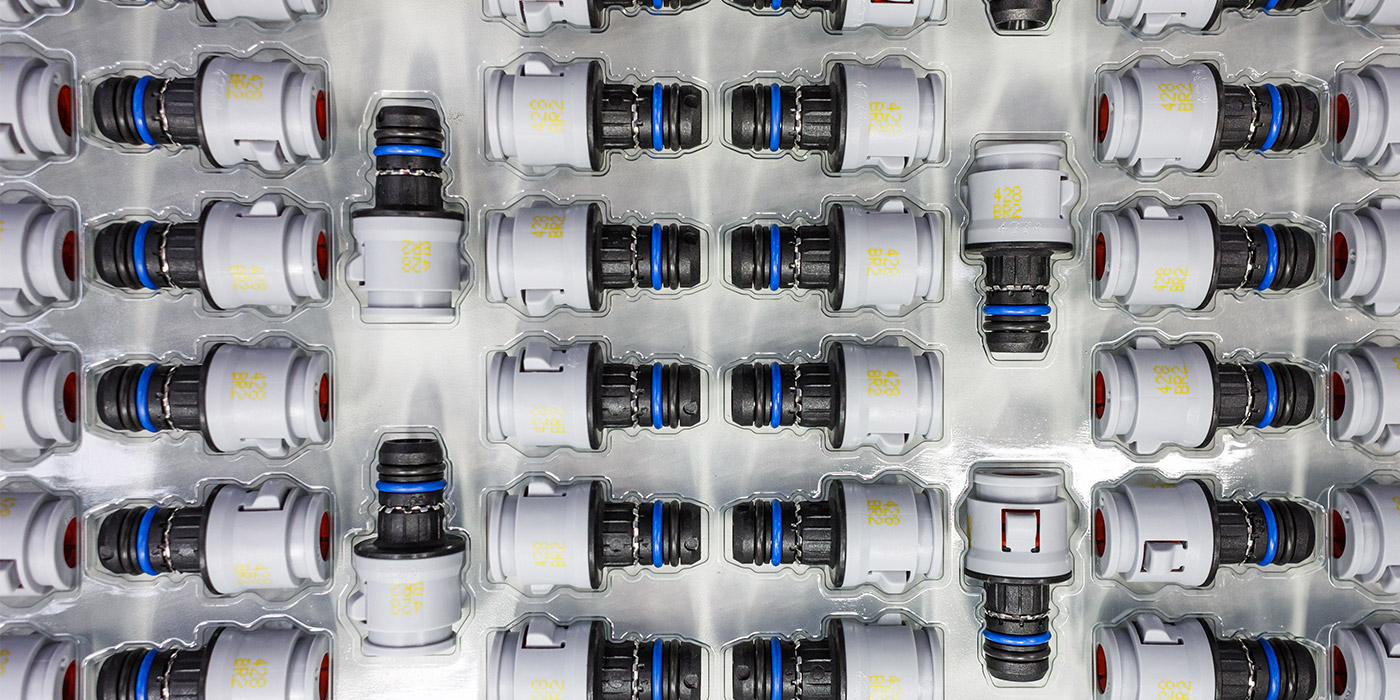There are many types of doors an owner can use for his or her carwash bays; a typical overhead door can be constructed of steel, glass or polycarbonate. Roll-up doors are also available in either steel or vinyl. For the sake of this article, which focuses on bay carwashes, I eliminate the steel options. I hope by now we all agree that steel is not a good choice for the carwash environment.
Vinyl door security
We can keep the discussion on security and vinyl roll-up doors short: Vinyl roll-up doors offer virtually no security. These style doors were designed primarily to block the wind in carwash bays. They also offer benefits such as heat retention, noise reduction and water retention inside the bay. However, security is not a feature of these doors.
The vinyl typically consists of 18- to 22-ounce material that can easily be cut with a knife or blade. Although the panels have windbars running horizontally to keep the door from blowing out of the opening, it is designed to knock out on impact, so it is not difficult to do. Furthermore, the panels can be easily lifted up to gain access underneath the door as there is no way to lock the door down. The point here is, if you are looking for security, the vinyl roll-up door is not your answer as a single-door solution.
You do have the option of mounting one on the outside of the building if you would like to use the roll-up door with an existing door that offers security. In some cases you can also mount a roll-up door on the inside of an existing security door. Make sure you give the dimensions and specifications of your existing security door to your distributor before you assume this will work.
Overhead door security
With overhead doors, there are two aspects to consider when you talk security. The first is the construction of the door panels themselves, and the second is how the door is operated. Take, for example, a manually-operated door. The door can be constructed of the strongest material on the face of the earth, but unless the door is physically locked it can be opened at any time by anyone. Adding an opener will make your door open and close automatically, but choosing the right opener is critical in determining the amount of security it provides your building.
Let’s start with the construction of the door panels. We have eliminated steel as a material because it is not a good construction material for carwashes. For a warehouse or dry environment application, it would be a good security option in almost all cases. A glass overhead door offers more security than a vinyl style door, but we all know that glass can be easily broken and therefore is not usually recommended for applications where security is a big concern. Polycarbonate is a good option for security in a carwash application. A 16 mm, five-wall polycarbonate section offers 200 times the impact strength of glass. Not that any door is impenetrable, but it would take the same effort to break through a polycarbonate door as a steel door.
Studying door functions
With that said, we go back to the notion of how a door functions. We have established that polycarbonate sections are the best material to use for security at a wash, but how do you ensure that a door is truly secure? A manually-operated or hand-operated door does not have any opener. Therefore, the only way to open and close the door is by a handle or rope. To secure a door of this style, you must have some form of slide lock attached to the door that will slide into a groove in the track to physically lock the door in the down position. Because the door is manually operated, the lock must be manually engaged and disengaged accordingly.
An operator will make your door automatic and will open and close the door based off signals received from buttons, loops, eyes, etc. Whether electric or pneumatic, two main styles of openers are used: jackshaft style or direct drive style. A jackshaft model does just as it sounds; it turns the shaft to open and close the door. The direct drive style attaches directly to the door and pushes/pulls on the door to open or close it.
When your door is down, a direct drive opener will provide security as the bracket on the operator is locked in place and in turn keeps the door locked in place. If you have a jackshaft opener and try to lift the door when it is down, it is possible to gain slack in the cables and push the door open, partially gaining access to the building. The only way to resolve this issue is to add a slide lock as is used on a manually-operated door, and then lock the door when not in use. However, it is important to remove the slide lock before putting the door and operator back in use.
The actual door material and the operator style are the two most important items to consider when analyzing door security. Once you have determined the style of door and which operator model to use, you can then evaluate options for temporary security such as opening at 6 a.m. and closing at 10 p.m. This can be easily done through basic controls in your carwash equipment or in your door control box. Speak with your door manufacturer or distributor for more information on temporary security options.
Josh Hart is the vice president of Airlift Doors Inc. of Minneapolis, Mich. For more information on Airlift Doors, visit www.airliftdoors.com or call 612.529.1000, extension 106.

